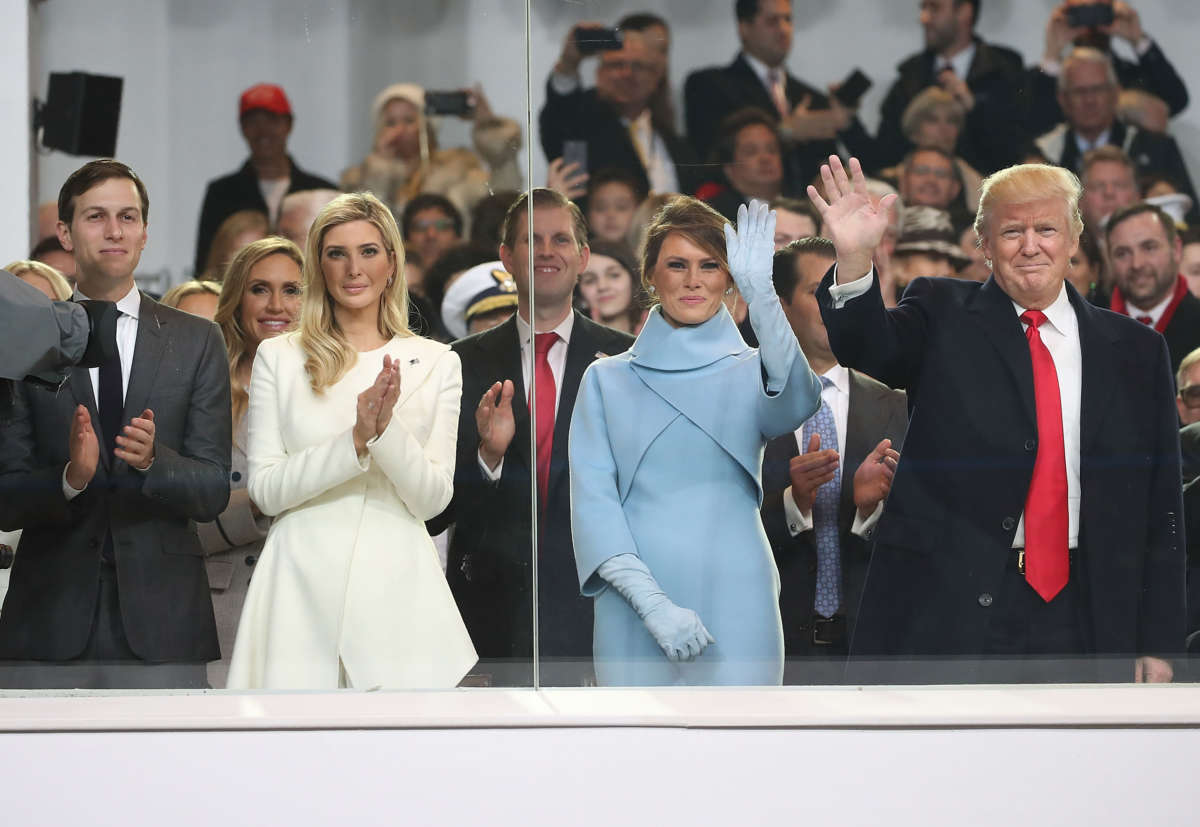Support justice-driven, accurate and transparent news — make a quick donation to Truthout today!
As the House’s impeachment inquiry into President Trump’s dealings with Ukraine progresses, the issue of nepotism has become one of the subplots. President Trump is accused of withholding U.S. military aid as he pressured Ukraine’s president to investigate Hunter Biden, the son of presidential candidate Joe Biden. As recently as November 20, the ranking member of the House Intelligence Committee suggested that Hunter Biden should be subpoenaed to testify. Meanwhile, Donald Trump, Jr., of all people, alleges that Hunter Biden is profiting off his father’s name. As many have been quick to point out, the same critique could apply to Donald, Jr., Ivanka, Eric, and Jared Kushner.
Nepotism comes from the Italian word for nephew, nipote. Back in the Middle Ages and during the Renaissance, “nepotism” referred to the objectionable practice of popes giving favors and jobs to their nephews. The “nephews” in question were really illegitimate sons of the should-have-been-celibate popes. A prime example of this nepotism was Pope Alexander VI, who was also known as Rodrigo Borgia, and whose son Cesare Borgia was a cardinal.
There is a difference between what is colloquially called “nepotism” — typically getting any private sector job through a family member, and legally prohibited nepotism, which is only triggered in narrow circumstances related to certain government jobs.
Today, nepotism has a legal meaning that differs from state to state and at the federal level. In some states, it is illegal to hire a relative to a government position. In my home state of Florida, a government official may not hire a relative, unless they live in a town smaller than 35,000 people. Meanwhile in Minnesota, it is perfectly legal for a governmental official to hire a family member. If you’re curious about nepotism rules in your state, the National Council of State Legislatures has a nifty chart.
Federal anti-nepotism rules were adopted after President John F. Kennedy appointed his brother Robert attorney general, a move that rubbed lots of people the wrong way — and for good reason. The attorney general should represent the interests of the American people. But with a sibling sitting in the White House, the legal oversight of the Justice Department’s top official could easily be clouded by familial ties. Now, a law prohibits federal officials, including members of Congress, from appointing relatives to any agency or department over which the official exercises authority. This prohibition includes parents, children, spouses, aunts, uncles, first cousins, in-laws, nieces and nephews.
So what are Jared and Ivanka Trump doing working in the White House given this law? According to the Justice Department Office of Legal Counsel, while the law prevents the president from appointing them to an agency, like the Department of Justice, it doesn’t apply to Jared and Ivanka because the White House is not technically an agency. As the Brennan Center’s National Task Force on Rule of Law & Democracy highlighted in a recent report, and as this example shows, anti-nepotism rules should be tightened to include the White House.
Outside of government, hiring relatives is not typically prohibited by law. It’s perfectly legal and not unusual for the Trump Organization, a private family business, to be staffed with people related to Donald Trump. It’s accurate to say that, with Donald Trump, Jr. and Eric Trump running the company, which was founded by their grandfather, there is nepotism at the Trump Organization — but that’s not necessarily problematic.
Certainly, there are advantages to having the same name as a well-known politician when entering politics. Just ask Kentucky Gov.-elect Andy Beshear, whose father, Gov. Steve Beshear, held office from 2007 to 2015. Having the same last name likely helped Andy clinch a razor-thin victory, though it was the voters who ultimately empowered him.
But being related to a rich, powerful, or famous person can carry other advantages. Hunter Biden himself has said that he would not have had certain doors open to him if he were not related to Joe Biden. But like Trump hiring his own family in his personal business and in the White House, that is not a crime.
Still, the behavior of the Trumps and the Bidens can be distinguished. While Trump hired his daughter and his son-in-law for government jobs, there’s no evidence that Joe Biden during his time as vice president actively used his influence to help Hunter find employment or with his work.
Meanwhile, President Trump is promoting — wait for it — the new book by his son, Donald Trump, Jr. Doing this is a violation of federal ethics rules for everyone who draws a U.S. government paycheck — except for the president.
The views expressed are the author’s own and not necessarily those of the Brennan Center.
Media that fights fascism
Truthout is funded almost entirely by readers — that’s why we can speak truth to power and cut against the mainstream narrative. But independent journalists at Truthout face mounting political repression under Trump.
We rely on your support to survive McCarthyist censorship. Please make a tax-deductible one-time or monthly donation.
